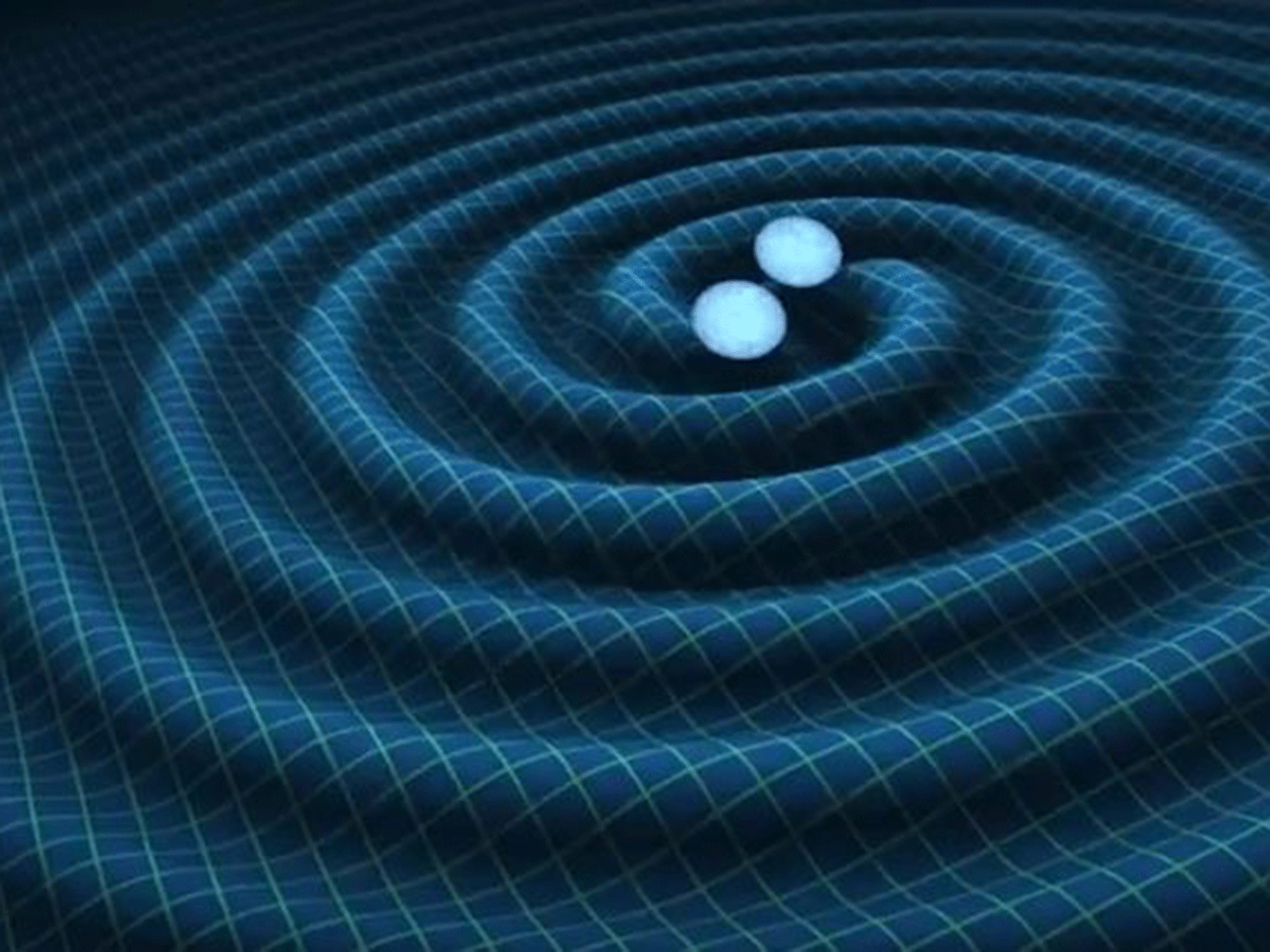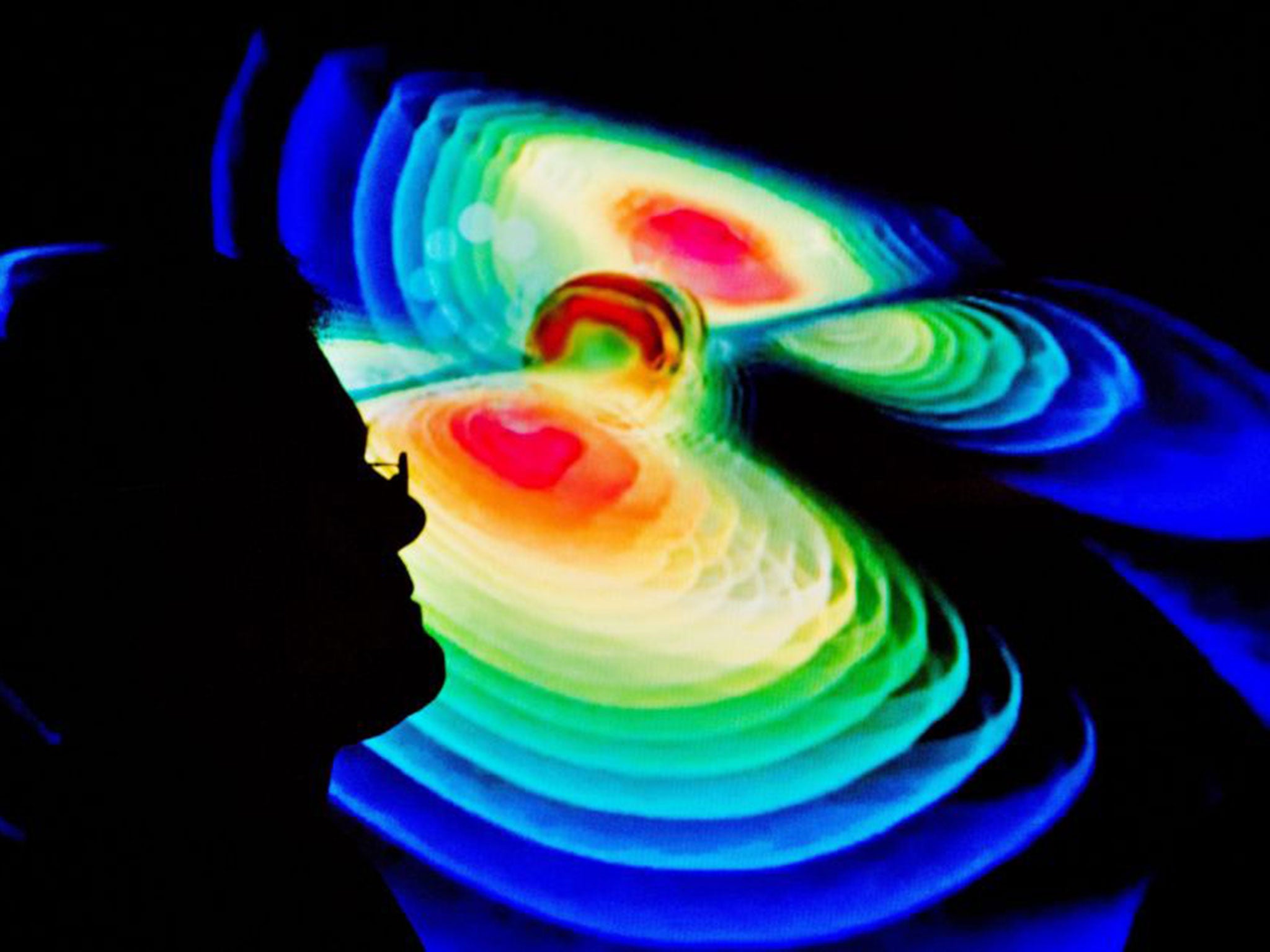Gravitational waves: Science 'discovery of century' explained perfectly in one paragraph
One internet user has compared the discovery to throwing a pebble in a pond

Your support helps us to tell the story
From reproductive rights to climate change to Big Tech, The Independent is on the ground when the story is developing. Whether it's investigating the financials of Elon Musk's pro-Trump PAC or producing our latest documentary, 'The A Word', which shines a light on the American women fighting for reproductive rights, we know how important it is to parse out the facts from the messaging.
At such a critical moment in US history, we need reporters on the ground. Your donation allows us to keep sending journalists to speak to both sides of the story.
The Independent is trusted by Americans across the entire political spectrum. And unlike many other quality news outlets, we choose not to lock Americans out of our reporting and analysis with paywalls. We believe quality journalism should be available to everyone, paid for by those who can afford it.
Your support makes all the difference.The importance of the detection of gravitational waves - as predicted by Albert Einstein 100 years ago - has been captured in a "great" one-paragraph explanation of the scientific breakthrough.
Posted on Reddit, the description was among a series offered in a section of the forum website that asks users to "explain like I'm five".
One answer to the query "why is today's announcement of the discovery of gravitational waves important, and what are the ramifications?" impressed readers beyond all others.
The user said they had explained the discovery of "ripples in the fabric of spacetime" to a pair of five-year-olds earlier that day.
They wrote: "You know how when you throw a rock in a pool, there are ripples? And how if we throw bigger rocks in, they make bigger ripples?

"Well, a long time ago, a really smart guy named Einstein said that stars and planets and stuff should make ripples in space, and he used some really cool math to explain why he thought that.
"Lots of people checked the math and agree that he was right. But we've never been able to see those ripples before."
Albert Einstein predicted the existence of gravitational waves in 1916, as part of his theory of relativity. He said massive objects moving in space would cause "ripples" in spacetime - or gravitational waves.
A number of figures have come close to proving their existence, from Russian physicists to researchers at the Massachusettes Institute of Technology, with two American scientists coming closest in 1993.
The Reddit user continued: "Now some people built a really sensitive measuring thing that uses lasers to see them, and they just proved that their device works by seeing ripples from a really big splash.
"So now we know how to see them and we can get better at it, which will help us learn more about space."
The "sensitive measuring thing" is the twin Laser Interferometer Gravitational-wave Observatory (LIGO) detectors, which are in Louisiana and Washington in the US.
The "really big splash" that the LIGO detectors have measured is the merging of two massive black holes about 1.3 billion years ago - whose ripples are still washing past Earth.
Reddit users - including one apparent LIGO scientist - praised the answer.
"I read the other responses and felt dumber than before. This one really helped," said one user.
"This seems the most understandable," said another.
A user who said he was one of the 1,000 LIGO scientists who worked on the research said: "Great explanation! This discovery has ushered in an awesome new era of astronomy.
"Before we started detecting gravitational waves, looking out at the universe was like watching an orchestra without any sound."
Join our commenting forum
Join thought-provoking conversations, follow other Independent readers and see their replies
Comments